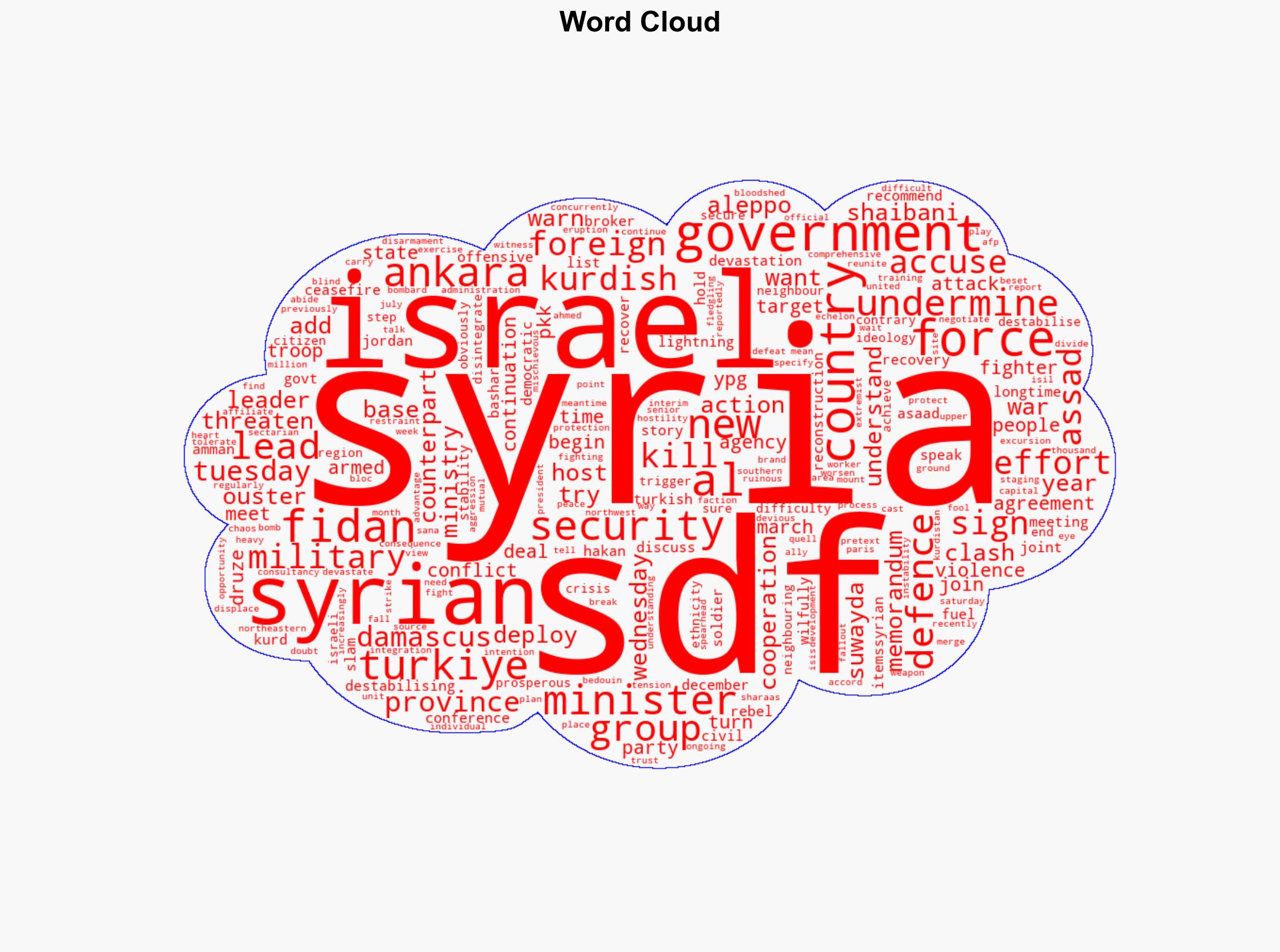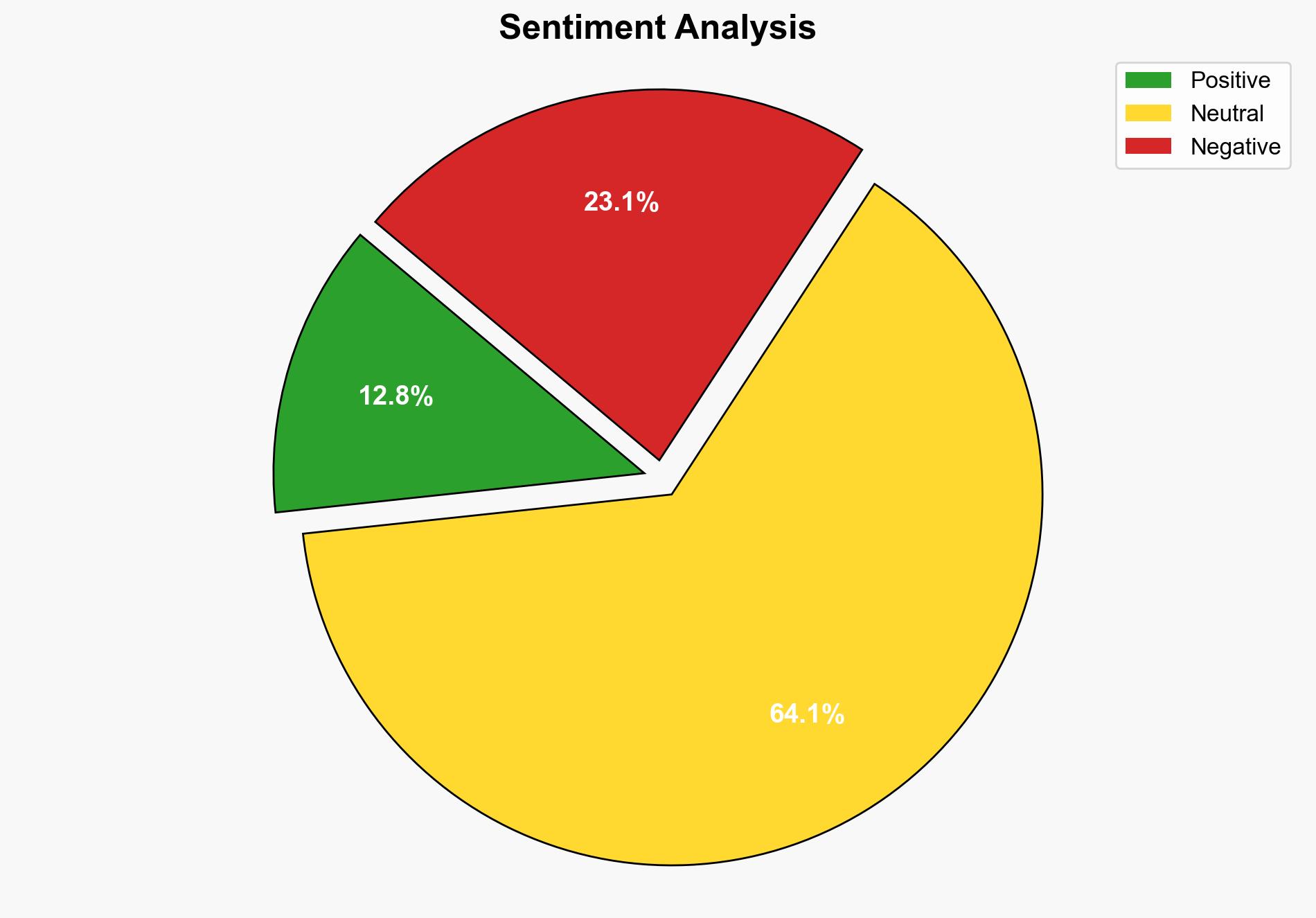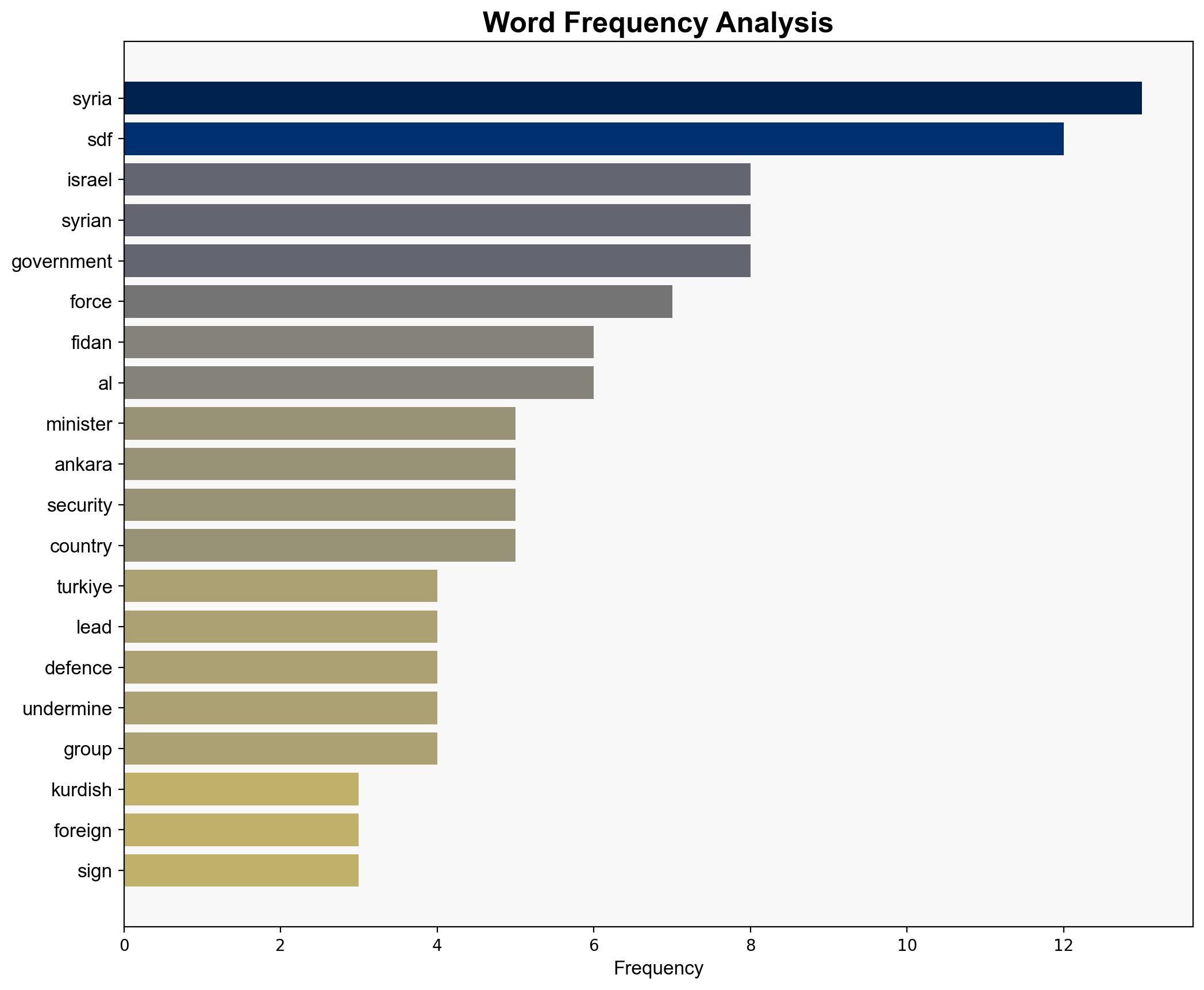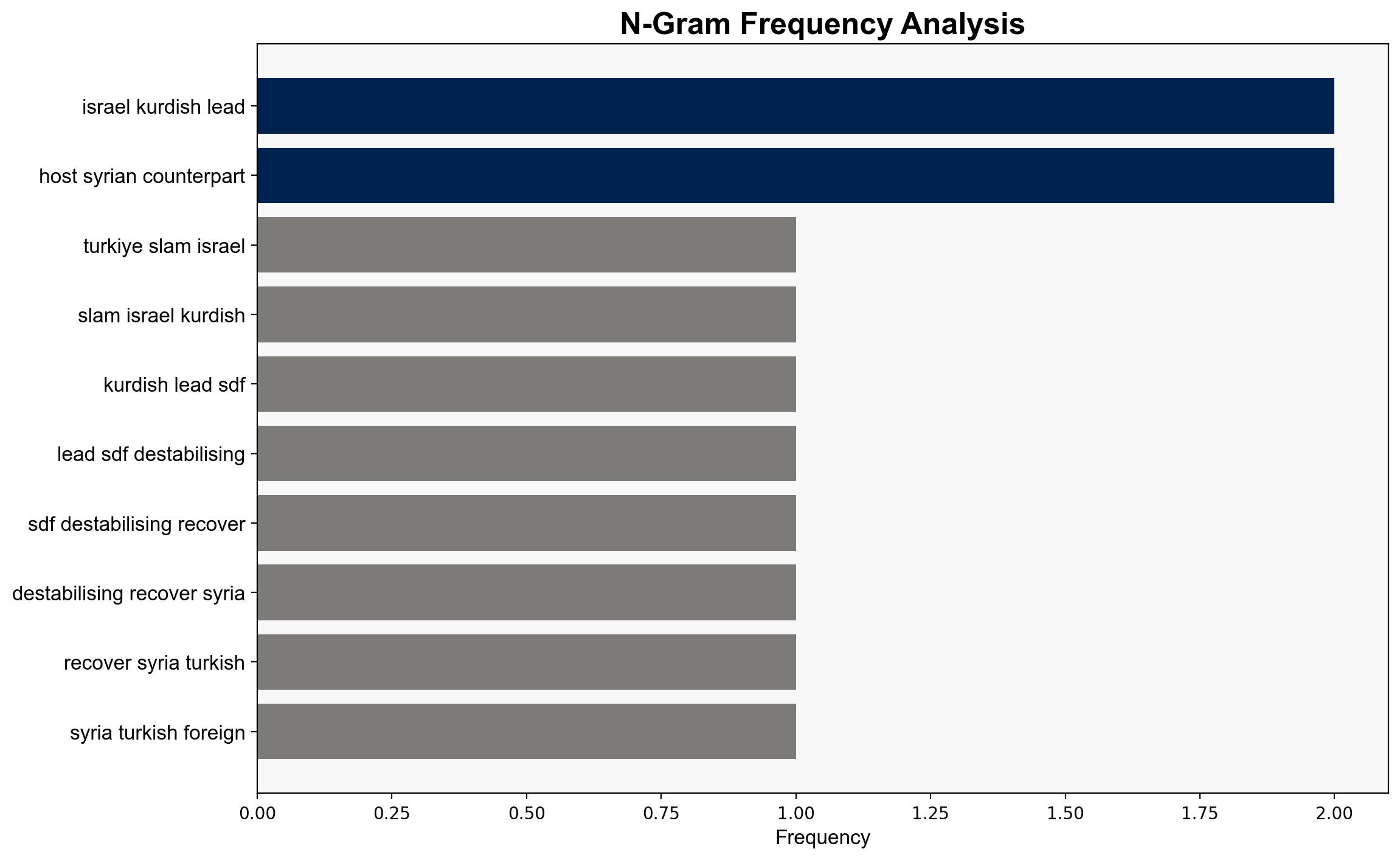Turkiye slams Israel Kurdish-led SDF for destabilising a recovering Syria – Al Jazeera English
Published on: 2025-08-13
Intelligence Report: Turkiye slams Israel Kurdish-led SDF for destabilising a recovering Syria – Al Jazeera English
1. BLUF (Bottom Line Up Front)
The most supported hypothesis is that Turkiye is leveraging its narrative against Israel and the Kurdish-led SDF to consolidate its influence in Syria and counter perceived threats. Confidence in this hypothesis is moderate due to the complexity of regional dynamics. Recommended action includes diplomatic engagement with key stakeholders to de-escalate tensions and monitor military developments closely.
2. Competing Hypotheses
1. **Hypothesis A**: Turkiye’s accusations against Israel and the SDF are primarily aimed at justifying its military presence and influence in Syria, while aligning with the Syrian government to counter Kurdish autonomy efforts.
2. **Hypothesis B**: The accusations reflect genuine security concerns from Turkiye about destabilization efforts by Israel and the SDF, which could threaten its national security and regional stability.
Using the Analysis of Competing Hypotheses (ACH) 2.0, Hypothesis A is better supported due to Turkiye’s historical stance against Kurdish autonomy and its strategic interest in maintaining influence over Syrian affairs.
3. Key Assumptions and Red Flags
– **Assumptions**: Turkiye’s narrative assumes that the SDF and Israel are actively working against Syrian stability. It also presupposes that Syrian government alignment is beneficial to Turkiye’s interests.
– **Red Flags**: Potential bias in Turkiye’s statements, as they may be influenced by domestic political agendas. The absence of corroborating evidence from independent sources regarding the alleged destabilization efforts is notable.
– **Blind Spots**: The role of other regional actors, such as Russia and Iran, in influencing the dynamics between Turkiye, Israel, and the SDF is not addressed.
4. Implications and Strategic Risks
– **Geopolitical Risks**: Increased tensions between Turkiye, Israel, and the SDF could lead to further military confrontations, complicating peace efforts in Syria.
– **Cascading Threats**: Escalation could draw in other regional powers, potentially leading to broader conflict.
– **Economic and Psychological Dimensions**: Continued instability may hinder reconstruction efforts in Syria and exacerbate humanitarian crises, affecting regional economies and civilian morale.
5. Recommendations and Outlook
- Engage in diplomatic dialogue with Turkiye, Israel, and the SDF to address security concerns and promote de-escalation.
- Monitor military activities and rhetoric for signs of escalation.
- Scenario Projections:
- **Best Case**: Successful diplomatic interventions lead to reduced tensions and cooperative security arrangements.
- **Worst Case**: Escalation into broader regional conflict involving multiple state actors.
- **Most Likely**: Continued low-level confrontations with intermittent diplomatic engagements.
6. Key Individuals and Entities
– Hakan Fidan
– Asaad Al Shaibani
– Ahmed Al Sharaa
7. Thematic Tags
national security threats, regional focus, geopolitical dynamics, military cooperation





